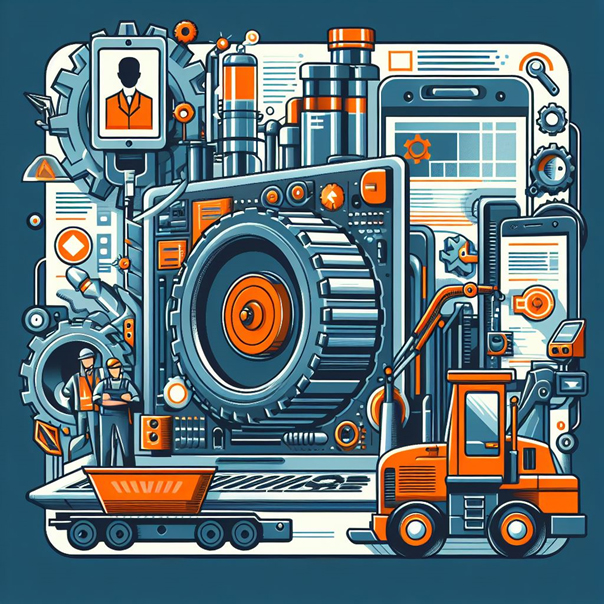Machinery Industry
The machinery industry is the basic industrial sector that meets the machinery manufacturing and maintenance needs of industrial branches operating economically in fields such as agriculture, transportation and defense.
Machinery Industry
The machinery industry is the basic industrial sector that meets the machinery manufacturing and maintenance needs of industrial branches operating economically in fields such as agriculture, transportation and defense. This sector, which traditionally serves in the field of heavy industry, is accepted as a part of light industry by companies doing business in today's free markets.
The machinery industry provides the production of various technological equipment, from electronic devices to automobiles and aircraft, as well as production tools in agriculture, mining and construction enterprises, and many equipment required for public services.
Machinery Industry in Turkey
After the proclamation of the Republic, industrialization started with government incentives due to the insufficient free capital in the country.
In Turkey, in the field of shipbuilding industry, firstly the shipyards destroyed during World War I were repaired and following this, the Gölcük Naval Shipyard was established in 1926. In addition to the nine five-year development plans developed from 1963 to 2013, the Shipyards Master Plan was included in the investment program in 2001 and was completed in April 2007.
The first Turkish passenger plane - Nu.D-38
The first steps of the aviation industry were taken when Vecihi Hürkuş built the first Turkish type aircraft, the Vecihi K-VI model aircraft. In 1926, Turkey's first aircraft factory, the Kayseri TOMTAŞ Factory, was opened, and in 1936, with the initiatives of Nuri Demirağ, the first aircraft factory was established by private enterprise. An important stage of mechanization in the aviation industry was recorded with the establishment of the first aircraft engine factory by THK in 1945.
In 1961, the first domestic step was taken in the automobile industry, albeit in limited numbers, with Devrim cars, and mass production of the Anadol brand car started in 1966.
In 1925, Şakir Zümre, with the approval of Atatürk, established the first privately owned arms and ammunition factory entirely with domestic capital. ASELSAN was established in 1975 to meet the communication needs of the Turkish Armed Forces, and HAVELSAN was established in 1982 to meet the software needs.
Turkey ranked 26th in exports and 23rd in imports in the 2018 world machinery trade rankings; According to 2018 TUIK data, the sector achieved a turnover of 109 billion TL with 13,371 enterprises and 243,550 employees, and total machinery exports reached 17.15 billion dollars. Nearly 11% of the country's total exports, which amounted to $171.6 billion in 2019, were covered by the machinery sector. Today, Türkiye is the 6th largest machinery manufacturer in Europe.
Machinery Industry in Different Countries
Germany: The global turnover of the German machinery industry in 2018 is estimated at 2,600 billion euros. In 2018, Germany's revenue in the sector reached 297 billion euros, accounting for 11.4% of the global machinery industry. Some of the major companies in Germany are DMG Mori Seiki, GEA Group, Siemens AG and ThyssenKrupp.
Japan: Exports of the Japanese machinery industry reached 144.3 billion dollars in 2018 and 133.6 billion dollars in 2019. 60% of these occurred in Asian markets, 24% in North America and 10% in European markets. Japan accounted for 9.6% of 2017 global machinery trade.
Netherlands: In the Dutch machinery industry in 1996, 2,500 companies operated and approximately 93,000 workers were employed. By 2011, approximately 15,000 companies were operating in the sector. Some of the major Dutch companies are Lely (company), Philips and Stork BV. Archived 11 November 2014 at the Wayback Machine.
United States of America: Total imports and exports of the US machinery industry in 2011 were around 413.7 billion dollars. The USA is the world's largest machinery market and third largest machinery supplier. American manufacturers have a 58.5 percent share of the US domestic market.
